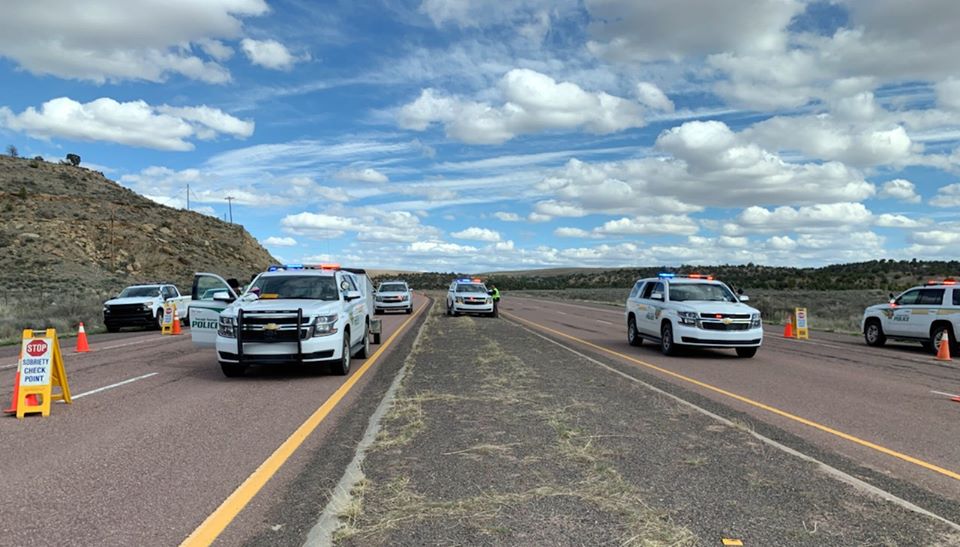
- Details
- By Levi Rickert
WINDOW ROCK, Ariz. — On Thursday, the Navajo Department of Health, in coordination with the Navajo Epidemiology Center and the Navajo Area Indian Health Service, reported 61 new COVID-19 positive cases for the Navajo Nation and four more deaths. The total number of deaths has reached 386 as of Thursday.
Reports from all 12 health care facilities on and near the Navajo Nation indicate that approximately 5,731 individuals have recovered from COVID-19. 62,185 people have been tested for COVID-19. The total number of COVID-19 positive cases for the Navajo Nation is 8,042.
Navajo Nation COVID-19 positive cases by Service Unit:
· Chinle Service Unit: 2,010
· Crownpoint Service Unit: 690
· Ft. Defiance Service Unit: 511
· Gallup Service Unit: 1,339
· Kayenta Service Unit: 1,143
· Shiprock Service Unit: 1,292
· Tuba City Service Unit: 728
· Winslow Service Unit: 325
* Four residences with COVID-19 positive cases are not specific enough to place them accurately in a Service Unit.
Navajo Nation President Jonathan Nez continues to urge all tribal citizens of the Navajo Nation to wear masks and practice social distancing in public. Beginning on Friday, July 10 at 8:00 p.m., the Navajo Nation’s 57-hour weekend lockdown will take effect and last until Monday, July 13 at 5:00 a.m. All businesses on the Navajo Nation are also required to close for the lockdown to help prevent travel among residents and visitors.
"The weekend lockdowns are very challenging for our Navajo Police Officers. Throughout this pandemic, our police officers have devoted long hours and most have not taken time off from work in order to protect our communities during the pandemic so it’s really a personal responsibility to stay home and comply with the weekend lockdown. Hold each other accountable and if you have loved ones who are planning to travel to the Navajo Nation from surrounding cities, please tell them that it’s not safe and that they are posing serious risks to their families and their communities. We’re not backing down from this fight against COVID-19, but we can’t beat this virus without the help of all our Navajo people," said President Nez.
The Navajo Nation’s Stay at Home Order remains in effect requiring all individuals on the Navajo Nation to stay at home and strictly limit movement, and limit public contact with others. Individuals may leave their place of residence only for emergencies or to perform "Essential Activities.” All residents are also required to avoid close contact with people who are sick, wash your hands for 20 seconds often, avoid touching high-touch surfaces, wear a mask, clean and disinfect your home, avoid public gatherings, and avoid non-essential travel.
|
To Donate to the Navajo Nation The official webpage for donations to the Navajo Nation, which has further details on how to support the Nation’s Dikos Ntsaaígíí-19 (COVID-19) efforts is: http://www.nndoh.org/donate.html. For More Information For more information including reports, helpful prevention tips, and more resources, please visit the Navajo Department of Health’s COVID-19 website. To contact the main Navajo Health Command Operations Center, please call (928) 871-7014. For up to date information on impact the coronavirus pandemic is having in the United States and around the world, visit the Worldometers website. For up-to-date information about COVID-19, Native News Online encourages you to go to Indian Health Service’s COVID-19 webpage. |
|
More Stories Like This
Native News Weekly (August 25, 2024): D.C. BriefsNavajo Utah Commission Approves Six New Weather Stations
First Peoples Fund Announces 2026 Cultural Capital Fellows
Deb Haaland Campaign Responds to Why Her Name is in the Epstein Files
Cadiz, Inc. Announces EPA Selection of Mojave Groundwater Bank Northern Pipeline Project for WIFIA Loan Application
Help us defend tribal sovereignty.
At Native News Online, our mission is rooted in telling the stories that strengthen sovereignty and uplift Indigenous voices — not just at year’s end, but every single day.
Because of your generosity last year, we were able to keep our reporters on the ground in tribal communities, at national gatherings and in the halls of Congress — covering the issues that matter most to Indian Country: sovereignty, culture, education, health and economic opportunity.
That support sustained us through a tough year in 2025. Now, as we look to the year ahead, we need your help right now to ensure warrior journalism remains strong — reporting that defends tribal sovereignty, amplifies Native truth, and holds power accountable.
 The stakes couldn't be higher. Your support keeps Native voices heard, Native stories told and Native sovereignty defended.
The stakes couldn't be higher. Your support keeps Native voices heard, Native stories told and Native sovereignty defended.
Stand with Warrior Journalism today.
Levi Rickert (Potawatomi), Editor & Publisher

